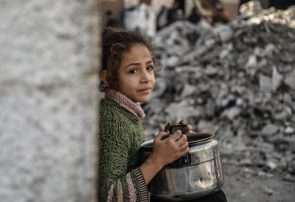UNICEF calls for Gaza ceasefire to save babies from dying from cold
TEHRAN (Iran News) According to IRNA, the UNICEF announced in message posted on its X social media platform on Tuesday local time that seven babies have died in the Gaza Strip in recent days due to the cold.
The organization added that while it is delivering winter clothes and blankets to families, the need is great as most displaced Gazans remain without proper shelter and other essentials during harsh winter conditions.
The call comes as several parts of Gaza has been flooded due to heavy rains over the past couple of days, adding misery to the people already in the dire humanitarian condition.
Reports indicate that floods have entered dozens of tents of displaced people in the cities of Deir al Balah, al-Mawasi and Khan Younis.
Previously, the UNICEF announced that 2024 had been the worst year for children, with an estimated 473 million children (one in six children) living in war zones worldwide, including in Gaza.
“By almost every measure, 2024 has been one of the worst years on record for children in conflict in UNICEF’s history—both in terms of the number of children affected and the level of impact on their lives,” said UNICEF Executive Director Catherine Russell.
Some media reports pointed to the martyrdom of more than 17,000 children during the approximately 15 months of the Israeli regime’s genocidal war on Gaza, with Al Jazeera quoted UNICEF spokesperson Rosalia Bolen as saying recently: 96 percent of women and children in Gaza cannot meet their vital food needs, and children suffer from illness and lack of winter clothing.
- source : irna






























